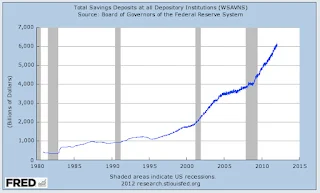Here's Rush cheer-leading Gov. Mitt Romney for something Romney said today at CPAC, something which shows neither he nor Limbaugh really understand the American Founding:
ROMNEY: We believe in the Constitution, the Declaration of Independence! We believe in life, liberty, and the pursuit of happiness! We know the brilliance that suggested that individuals pursuing their own dreams would make us the most powerful nation on earth, not a government trying to guide our lives. This is who we are! This passion we must take to the American people. This is our moment! This is why we're conservatives. The task before us now is to reaffirm the convictions that unite us and go forward, shoulder to shoulder, to secure victory that America so desperately needs and deserves.
CROWD: (cheering)
ROMNEY: Let's do it together! Thank you, and God bless America.
CROWD: (cheers and applause)
ROMNEY: Thank you.
RUSH: Right on, dude. Right on. I mean, that's... What did you think of that, Snerdley? Did you it? That was! It was severe. It was. It was "severely conservative." You know that I'm just gonna get beat up so bad for this.
Rush should get beat up for this, along with Romney, because becoming "the most powerful nation on earth" was as foreign a concept to the Founders as it is to conservatism.
The Founders sought independence from England in order to enjoy membership in the family of nations, instead of enduring the on-going disrespect with which King George treated his colonies in America. A grandiose design to become world hegemon, pace Mitt, pace Rush, was a . . . uh hum, foreign concept.
From "The Original Intent of the Declaration of Independence" by John Fea,
here:
Historian David Armitage, in a fascinating book entitled The Declaration of Independence: A Global History, has argued convincingly that the Declaration of Independence was written primarily as a document asserting American political sovereignty in the hopes that the newly created United States would secure a place in the international community of nations. In fact, Armitage asserts, the Declaration was discussed abroad more than it was at home. This meant that the Declaration was "decidedly un-revolutionary. It would affirm the maxims of European statecraft, not affront them."
To put this differently, the "self-evident truths" and "unalienable rights" of the Declaration's second paragraph would not have been particularly new or groundbreaking in the context of the 18th-century British world. These were ideals that all members of the British Empire valued regardless of whether they supported or opposed the American Revolution. The writers of the Declaration of Independence did not believe that they were advancing political principles unique to America. This was a foreign policy document.
In an 1825 letter to fellow Virginian Henry Lee, Thomas Jefferson explained his motivation behind writing the Declaration:
When forced, therefore to resort to arms for redress, an appeal to the tribunal of the world was deemed proper for our jurisdiction. This was the object of the Declaration of Independence. Not to find out new principles or new arguments, never before thought of . . . but to place before mankind the common sense of the subject, in terms so plain and firm as to command their assent, and to justify ourselves in the independent stand we are compelled to take.
John Adams, writing five years after he signed it, called the Declaration "that memorable Act by which [the United States] assumed an equal Station among the nations." There is little in these statements to suggest that the Declaration of Independence was anything other than an announcement to the world that the former British colonies were now free and independent states and thus deserve a place in the international order of nations.
Alas, we are left with ignorant fools, appealing to ignorant fools.
Same as it ever was.














































